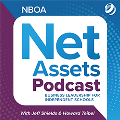The information below is accurate as of press time. However, as the situation surrounding COVID-19 continues to evolve, it's possible that some data have changed since publication. Additionally, this information is provided for general educational purposes only. It should not be relied upon as, or in place of, legal or other professional advice. Readers are encouraged to stay informed through news and recommendations for their own communities and also work with their schools’ trusted counsel and partners when addressing specific issues.
(from NBOA) The Department of Labor (DOL) has confirmed that guidance related to the Families First Coronavirus Relief Act (FFCRA) issued on Friday, September 11 will not change before going into effect on Wednesday, September 16, when the new temporary rule will be published. Of four changes to the FFCRA, only one significantly impacts independent schools. The requirement that employees give employers supporting information for their FFCRA leave prior to going out on leave has been amended. When giving prior notice is impractical, such as when an employee gets sick, it is not required. See below for more information.
The FFCRA was signed into law on March 18 of this year and provides paid emergency leave to many workers who are affected by COVID-19. It remains in effect until December 31 of this year. In early April, the DOL published a temporary rule and several corrections to it, which provided a framework for the implementation of FFCRA leave options. In mid-April, the State of New York filed suit in the U.S. District Court challenging parts of the temporary rule, and in early August, the court ruled that four parts of the temporary rule are invalid. As a result, the DOL has issued a new temporary rule to clarify/correct those parts that were ruled invalid.
The new temporary rule addresses the following parts of FFCRA implementation. The final change is the one most relevant to independent schools.
- The court struck down the requirement that employees can only take FFCRA leave when the employer has work for the employee to do. This was ruled to be capricious since it allowed for employers to furlough/lay off employees after they had started leave and thus deny the leave to them. The DOL’s new temporary rule confirms that employees can only take FFCRA leave when the employer has work for the employee to do, and that employers can still furlough/lay off employees after the leave has started, which would end their leave and potentially move them to unemployment. The DOL’s new temporary rule makes clear that employers who do so must have a solid business case for the decision and that decisions made to retaliate against an employee for taking FFCRA leave are illegal and prosecutable.
Bottom line for independent schools: No significant change. Offers a means of recompense for employees whose employers are behaving capriciously/maliciously.
- The court struck down the requirement that intermittent FFCRA leave must be approved by the employer, stating that the DOL had not made clear why this requirement existed. The DOL’s new temporary rule states that intermittent FFCRA, when allowed, must be taken with approval from the employer, but they’ve now explained why that is.
Bottom line for independent schools: No significant change.
- The court struck down the DOL’s interpretation of “health care provider” which was very expansive and included all employees who work for health care organizations, even those whose services are not related to patient care. The DOL’s new temporary rule states that the definition of “health care provider” includes all who are employed to provide diagnostic services, preventative services, treatment services or other services that are integrated with and necessary to the provision of patient care.
Bottom line for independent schools: No significant change.
- The court struck down the requirement that employees give supporting information for their leave to employers prior to going out on leave, stating that it is impracticable in many situations. The DOL’s new temporary rule states that supporting information for leave can still be required by employers when reasonable and must be provided to the employer “as soon as practicable.” The expectation stated under the rule is that employees who are out on paid sick leave may only be required to produce documentation after the first workday missed due to leave, but that those who are going out for childcare reasons can be required to show documentation prior to leave beginning since this is a foreseeable situation.
Bottom line for independent schools: This change will impact schools and may delay the timetable for them receiving supporting documentations for leave, but it isn’t a dramatic change and likely was already what schools were doing in practice.
Related content
FFCRA/Sick Leave Relief Act FAQs
Employee Leave Considerations Tool
